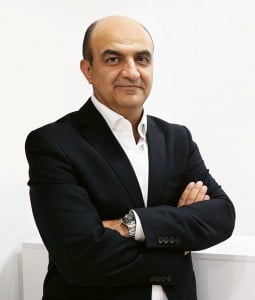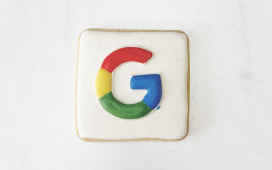
A year ago, Samir Ayoub was regional CEO of Mindshare, a role he had held for 17 years. Then the WPP media agency was thrown into turmoil. In November, Mindshare’s star regional account, the Japanese automotive manufacturer Nissan, put its planning and buying out to pitch, and in March it left its agency of six years and moved its regional brief to global incumbent OMD. In May, one-time MENA CEO of Starcom Mediavest Group Filip Jabbour returned to the region from four years in the US to become the first regional CEO of Group M, the WPP media unit that encompasses Mindshare, MEC, MediaCom and BPG Maxus. But Ayoub did not stick around to see many of these changes. In January he resigned, and disappeared from view.
Rumours began to emerge that Ayoub would become a poacher-turned-gamekeeper, teaching clients the dirty tricks that agencies play on them.
Now back with a new company, MedPush, Ayoub says the reality is more prosaic. His main clients will indeed be advertisers, but his former colleagues and peers have little to fear.
“My initial feeling was yes, the agencies will get scared by what I am doing, because I am coming from the kitchen and I used to do [what they do]. But the services we provide to advertisers will directly or indirectly help the agencies, because there are areas where agencies are not fairly rewarded and appreciated in terms of the services they offer.”
MedPush, with the tagline ‘redefining media efficiency’, offers three main services: audit, consultancy and training.
“Being in the industry now for more than 25 years, I wanted to do something that would be beneficial to the industry, because we all know about the issues and challenges in the industry,” says Ayoub. He says the reason for his business model is “because my ultimate objective is, along with the team, to help improve the standards of the industry. This is part of our mission.”
Campaign is speaking to Ayoub in MedPush’s new office. The team of five (which Ayoub plans to grow to 11) are the first occupants of the Jumeirah Lakes Towers suite, which is virgin white and not yet fully decorated. Empty frames hang on the walls the day we visit, and Ayoub tells us his office manager is out looking for suitable pictures to fill them.
The company has so far signed only one client, Aujan Group Holding. It will work on the regional soft drink conglomerate’s Rani and Barbican brands but Ayoub won’t say yet what the scope of the contract is.
If Ayoub’s assertions are to be believed, it will not only be clients such as Aujan who will benefit from MedPush’s arrival into the market.
“You have the triangle of the industry: agencies, clients and media,” he says. “They have to complement each other. So our business model will help the agencies as much as the clients.”
Auditing can help keep agency-client relations harmonious if clients feel they are getting the most from their contracts.
“If there is peace of mind and the relationship between the agency and the client is good, then everybody is happy,” he adds. “Agencies are happy, clients are happy, and the last thing anyone wants is to have a pitch.”
He explains: “When there is a pitch it is hectic; hectic for the client, hectic for the agency. And our role is to help fixing the relationship if there is any issue, so there is no pitch at the end of the day.”
There are three strings to MedPush’s media auditing bow. It will look at pricing, planning efficiency and compliance and transparency. This is a similar model to the services that big international players such as Firm Decision and its parent Ebiquity offer, but with crucial local knowledge, says Ayoub. He would be happy to form alliances with international players, he says and is already in talks with at least one.
The consultancy aspect of MedPush’s business is focused on efficiency. It will steer clients through the pitching process, and will make sure the contract written afterwards reflects what has been promised by the agency.
MedPush can also take the place of in-house media experts throughout the year, showing clients what is and isn’t relevant from their media agencies’ performance, results and buying decisions and helping them drive their agencies harder.
And it also offers a 360-degree evaluation, a process that might be unthinkable without an objective middle man. In this time of squeezed budgets and squeezed agencies, few media planners would be prepared to tell their clients to up their game. But agencies often have just cause to complain that they are not being adequately briefed, that they are not getting approvals on time, and lapses of process are hampering their ability to do their jobs well. “So far, the vast majority of clients evaluate their agencies based on set key performance indicators,” says Ayoub. “But agencies don’t value the clients. So we developed a 360-degree evaluation system
to make sure that both parties are doing whatever is needed from them.”
No one enjoys criticism. But, says Ayoub, “coming from a third party and at equal distance, it gives more credibility”.
Training is the third weapon in MedPush’s arsenal, and can involve the third side of the media-buying triangle: the owners and vendors.
“There is a huge gap in the market between what agencies and the clients talk and what media vendors talk,” says Ayoub. “Because, whether you like it or not, most of the media vendors talk the language of trading.”
However, the question of whether inventory and media space are helping the brand can only be measured with results: does that media build brand values or equity?
Training across the board can help ensure everyone – agencies, clients and vendors – speaks
the same language, and this will improve the standards of the market.
After 25 years of working in regional media (17 with Mindshare and, before that, another eight with Ogilvy, which along with JWT formed the media agency in the late 1990s) Ayoub will be trading on expertise, reputation and contacts. His team are also from within the industry (one came with him from Mindshare), and he wants to leverage their practical expertise.
“What the industry needs is practical media experts, not theoretical experts,” he says. “There is a big difference between practical and theoretical. Theoretical you can find anywhere, any market, any place. But [the MedPush team comes from] the practical market, from within the industry, who know the industry very well. They tailor-make what we have in the programmes to suit the industry, based on the market dynamics.”
Ayoub knows everyone in the industry. “I am a very honest man,” he says, and this is how people within media agencies know him. He adds: “I am transparent. I don’t hide behind everything. This is my reputation in the market.”
That market is changing fast as agencies mutate ever further from their origins as media buying units.
“If agencies don’t evolve their business model, their recent business model will die. And many agencies have already started to evolve,” he says. “Pure media planning and buying will not be sufficient enough for them to survive. So they need to diversify their services. And it will be driven more by fee rather than by commission. The efficiency and added value they will provide is what will make them.”
Pricing and numbers will cease to be the currency of media, he predicts: “It will be more qualitative over quantitative and more diversified over focused services.” For example, social media and other creative offerings will become more important.
Such overlaps between industry practices mean creative and media agencies need to “go back and reconnect”.
“There are many people globally talking about this, that creative agencies say we need to bring media back on board,” says Ayoub. “For me it is not about bringing media back on board; it is probably about having media experts on the creative agency side, because they will help them to develop the communications strategy.”
The ‘content and connect’ of creative and media, respectively, must work hand-in-hand.
MedPush can help agencies as they develop their new models. They are currently being squeezed on their buying margins, but efficiency needn’t equate to austerity. Indeed, says Ayoub, “there are areas where agencies require a higher fee for them to be able to offer better services”.
Technology means much more is now measurable, and agencies have more to show clients than the volumes and reach of media they can provide.
“In the past few years, clients are willing to pay agencies more if they feel they are getting the return on investment,” says Ayoub. “So clients are not about paying less; it’s about getting more value and ROI.”
In other words, it all comes back to that driving principle of efficiency. Less waste and more focus in the agency-client-media melange can mean everyone comes out on top.









